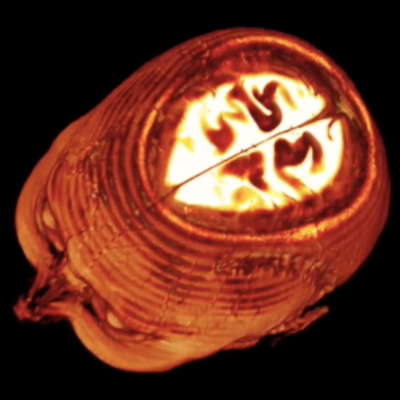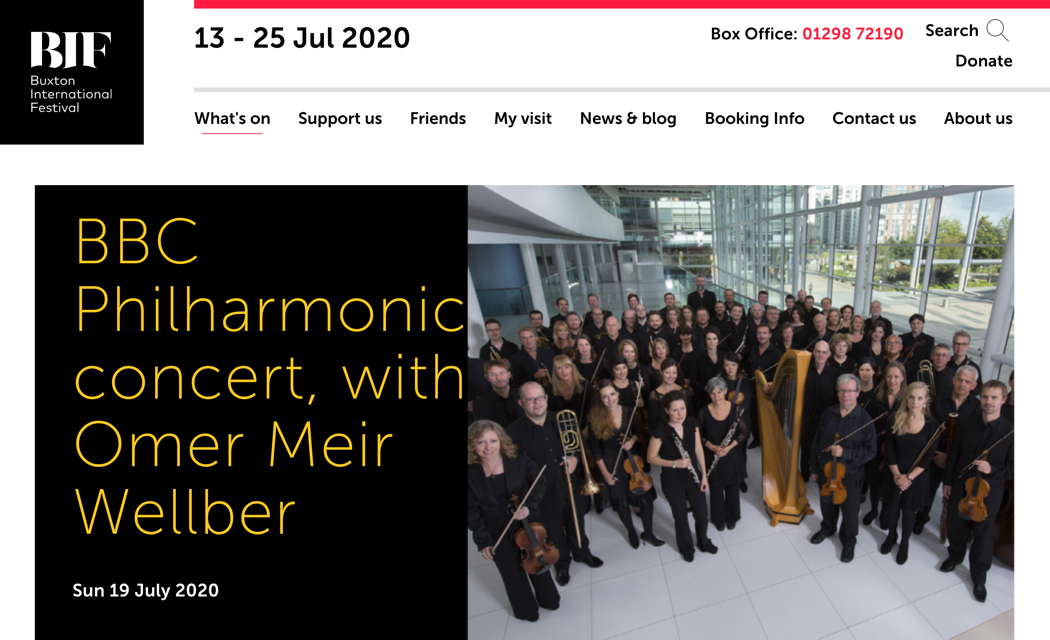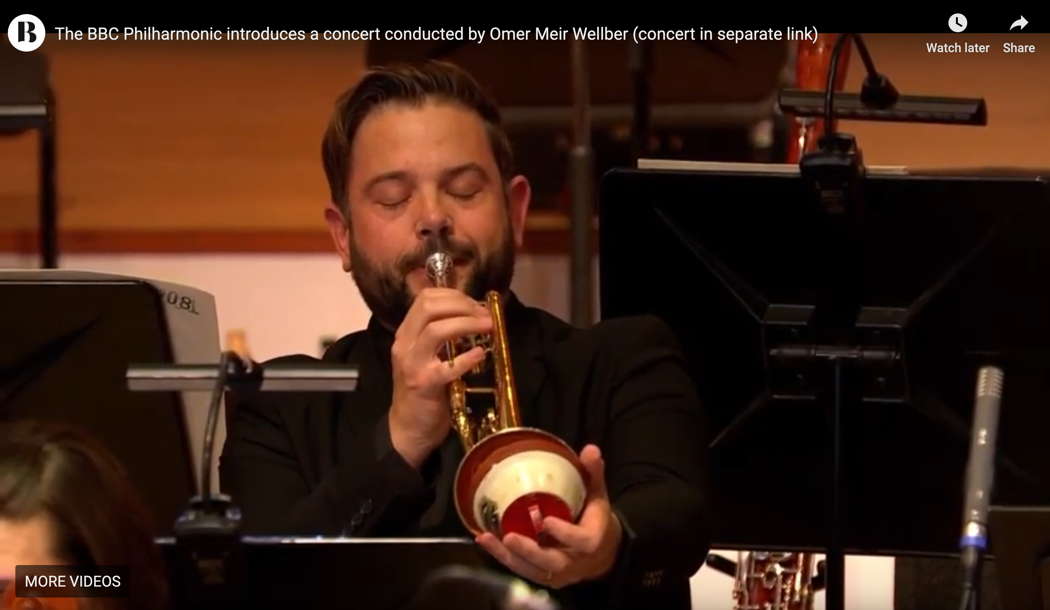- ninth century
- Teresa Berganza
- George Dyson
- Charles Villiers Stanford
- Daniel Catán
- Palazzetto Bru Zane - Centre de musique romantique française
- Arizona USA
- Rosemary Braddy
 DISCUSSION: Composers Daniel Schorno and John Dante Prevedini discuss creativity, innovation and re-invention with Maria Nockin, Mary Mogil, Giuseppe Pennisi and Roderic Dunnett.
DISCUSSION: Composers Daniel Schorno and John Dante Prevedini discuss creativity, innovation and re-invention with Maria Nockin, Mary Mogil, Giuseppe Pennisi and Roderic Dunnett.
 UPDATES: There's a new feature every day at Classical Music Daily. Read about the various ways we can keep in touch with you about what's happening here.
UPDATES: There's a new feature every day at Classical Music Daily. Read about the various ways we can keep in touch with you about what's happening here.
Artificially Injected?
Mozart from Omer Meir Wellber and the BBC Philharmonic Orchestra with 'a number of surprises' as part of the Buxton International Festival Digital 2020 Season, experienced by MIKE WHEELER
The BBC Philharmonic Orchestra made its first visit to the Buxton Festival in 2019, and was to have returned this year. To compensate for the cancellation, the Festival's digital offering includes this performance of Mozart's Piano Concerto No 12 in A, K 414, with principal conductor Omer Meir Wellber directing from the keyboard. Filmed in September 2019 in the orchestra's studio in MediaCityUK, Salford, it includes, we are told, 'a number of surprises'. More on those in a moment.

Online publicity for the Buxton Festival film BBC Philharmonic concert, with Omer Meir Wellber
K 414 is one of three - the first piano concertos Mozart composed after settling in Vienna in 1782. The first movement sets off full of airy textures, with Wellber leading in a relaxed, easy style, establishing a conversational relationship with the orchestra. The exchanged repeated-note figure with the violins early on is a particular delight. There is a certain amount of tempo flexibility but it's done subtly and is not intrusive.
Then comes the cadenza, and Gary Carr sails in with a solo trumpet call. On goes the wah-wah mute, the tempo picks up, and we're in a different world, reminding me of nothing so much as one of Peter Maxwell Davies' 1960s foxtrots, with a bit of Stéphane Grappelli thrown in. What's going on?

A screenshot from the introductory video showing Gary Carr playing solo trumpet in a Mozart cadenza
As violinist Julian Gregory explains in the separate introductory video, Wellber 'often likes to do things differently'. On this occasion he wanted to involve a small group from the orchestra in improvising a collective cadenza. Carr points out that Mozart's scoring does not include a trumpet part, but this was 'an opportunity you just don't say no to'. A two-hour jam session in the studio laid the foundations, and off they go - Wellber and a seven-piece band comprising violin, clarinet, trumpet, accordion, mandolin, bass and drums. Coming back into Mozart's original is deftly done, I'll give them that.
The second movement has an air of sensitive introspection which seems exactly right. Here, and in the finale, there are two spaces for cadenzas, the shorter earlier one marked in the score by the term Eingang. At this point in the second movement the violin takes over the piano's trill, then hands over to the accordion, who hands over to the clarinet. This one works, because it emerges from the body of the concerto without sounding forced. The main cadenza, when it arrives, is full of klezmer echoes. Nothing wrong with that in itself, but it feels parenthetical to the Mozart, rather than an integral part of it.
There's a pert, lively feel to the finale, well maintained throughout. The bongos and mandolin that break in at the Eingang simply sound intrusive, which may have been the intention, of course. The main cadenza starts promisingly, with muted trumpet and accordion blending nicely. Then the tempo is abruptly ratcheted up for a galop that wouldn't sound out of place in Shostakovich's Piano Concerto No 1.
Wellber and the BBC Philharmonic Orchestra are clearly building a fine partnership - he has been Principal Conductor since the start of the 2019-20 season - and their Mozart is buoyant and stylish. As for the collective cadenzas, basically, this is a nice idea that, on this occasion, doesn't work as well as might have been hoped. Although using Mozart's themes, for the most part they feel artificially injected into the music rather than growing out of it. On the other hand the idea of the soloist joining members of the orchestra in collective improvised cadenzas, if sensitively handled, maybe as separate, self-contained pieces, has the potential to move in all sorts of interesting directions.
Copyright © 25 July 2020
Mike Wheeler,
Derby UK

FURTHER INFORMATION: BUXTON FESTIVAL
FURTHER INFORMATION: BBC PHILHARMONIC ORCHESTRA


